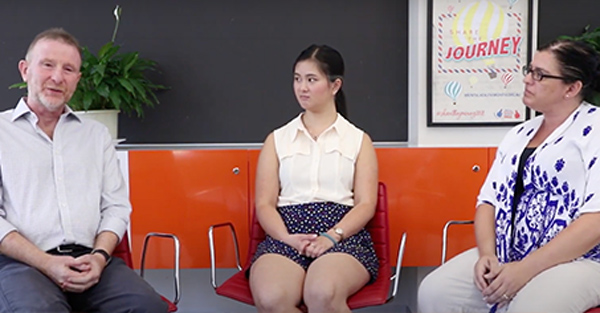It’s usual for children to feel anxious or fearful about a variety of different things. After all, children are confronted with all sorts of new experiences and challenges as they grow up and learn about the world around them. In most cases these fears are transitory and do not significantly interfere with a child’s academic, social or family life.
However, for some children, fears and anxieties can have a significant impact on the way they perform at school, on their ability to make or maintain friends, and on their family life.
As a parent, you know your child better than anyone else. So how can you tell if your child needs professional help to deal with their anxiety?
Video – Professor Ron Rapee answers some common questions about anxiety in children.
Click the three lines ☰ in corner of video to see all questions in this video series.
Significant interference in day-to-day life
Children with problematic anxiety tend to experience high levels of anxiety across many facets of their lives. Is your child unable to complete homework tasks due to their anxiety? Are they having difficulty making or maintaining friendships? Do they frequently express anxiety about going to school, or are absent from school due to anxiety? Are they frequently complaining of feeling sick/unwell? Is there anxiety stopping them from doing what they would like to do? (e.g. stay over at friends’ places, playing sport, going swimming). Is your child so anxious that they are frequently losing sleep, or need to sleep in the same room as you or another family member?
Age inappropriate fears
If other children their age are not displaying the same sorts of thoughts or behaviours, then your child’s anxiety may be problematic. For example, children between the ages of 6 months to 6 years often show distress upon separation from their parents. However, children of 10 years of age usually do not become distressed when separating from parents.
Significant distress
Anxiety is problematic when children experience high levels of distress because of it. Is your child becoming extremely upset when faced with their fear? Are they enduring anxiety-provoking activities with a high level of distress? For example, a child with social fears may cry whilst having to participate in a group activity. Is your child frequently having meltdowns at the prospect of, for example, going to school, being away from you or home, or having to mix with other children?
Length of time
If your child’s anxious behaviour has caused significant distress and interference in their life on more days than not, it may indicate that they need some assistance. Has your child been displaying anxious behaviour for quite some time, and has this behaviour been constant? For example, if a child was anxious for one week whilst away at camp but has been fine since, it’s unlikely that this child would require further assistance.




